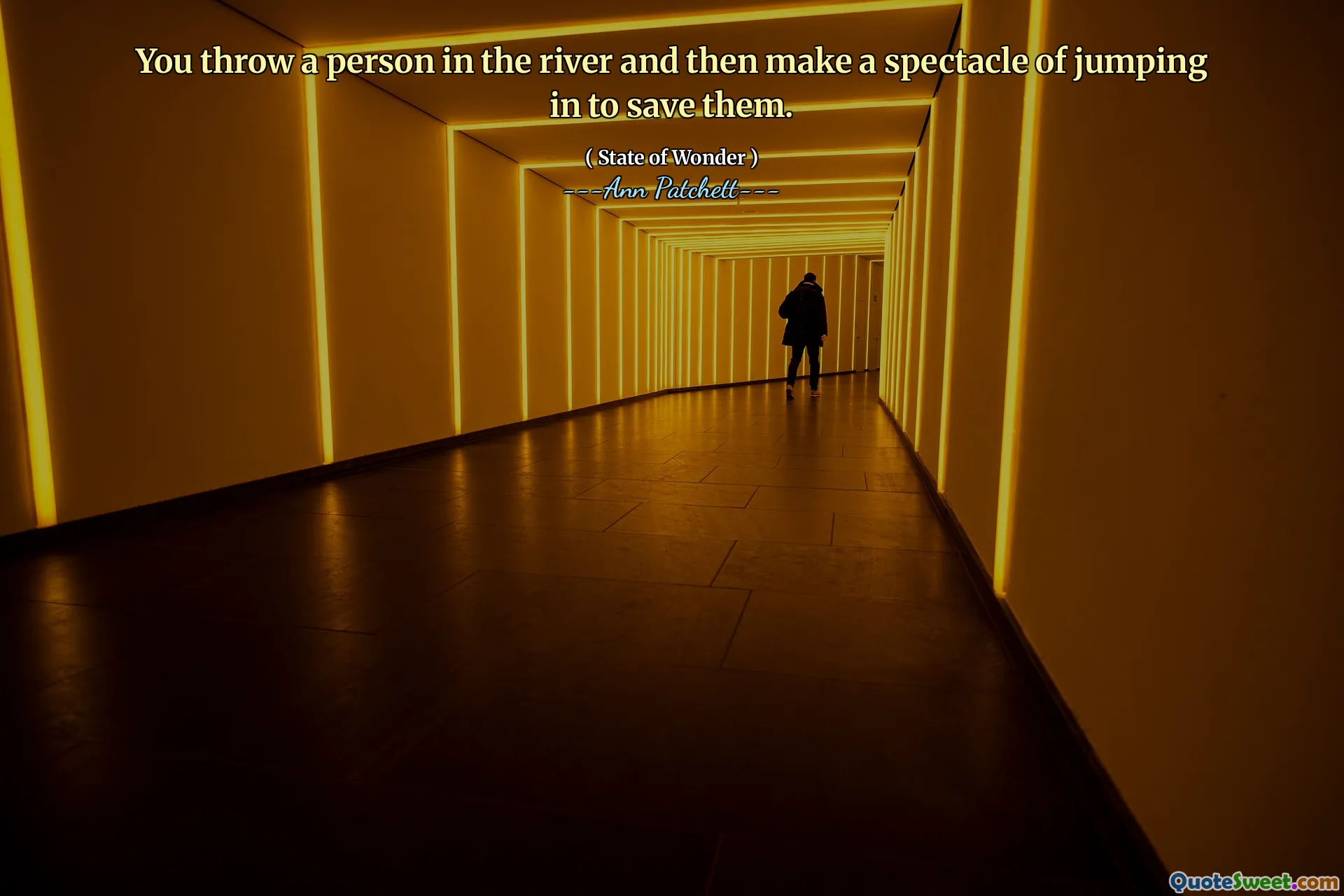
You throw a person in the river and then make a spectacle of jumping in to save them.
This quote offers a powerful metaphor for the unintended consequences of our actions and the importance of genuine intervention. When we place someone in difficult or harmful situations, such as casting them into the metaphorical 'river' of life's challenges, our subsequent attempts to 'save' them—often driven by attention-seeking motives or superficial gestures—can be viewed as disingenuous or performative. The act of making a spectacle of jumping in to rescue might draw applause or admiration but may lack true understanding or commitment to addressing the root problem.
Reflecting on the natural and social dynamics, this analogy emphasizes the importance of responsible intervention. It raises questions about motivations—are we helping because we genuinely want to assist, or are we primarily seeking recognition? Sometimes, well-intentioned actions can do more harm than good, especially if they distract from the real issues or foster dependency.
The quote challenges us to evaluate our role in solving problems and highlights the potential hypocrisy in performative rescue efforts. It underscores the need for humility and sincerity, reminding us that the most meaningful help often comes from resolutely addressing underlying causes rather than appearing to act for superficial approval.
In the context of personal relationships, social justice, or organizational leadership, this insight urges careful consideration of our motivations and methods. True aid requires empathy, patience, and a willingness to face uncomfortable realities, rather than seeking applause for dramatic gestures. Overall, it advocates for authentic, thoughtful intervention over superficial spectacle, fostering a culture of genuine support and responsible action.






